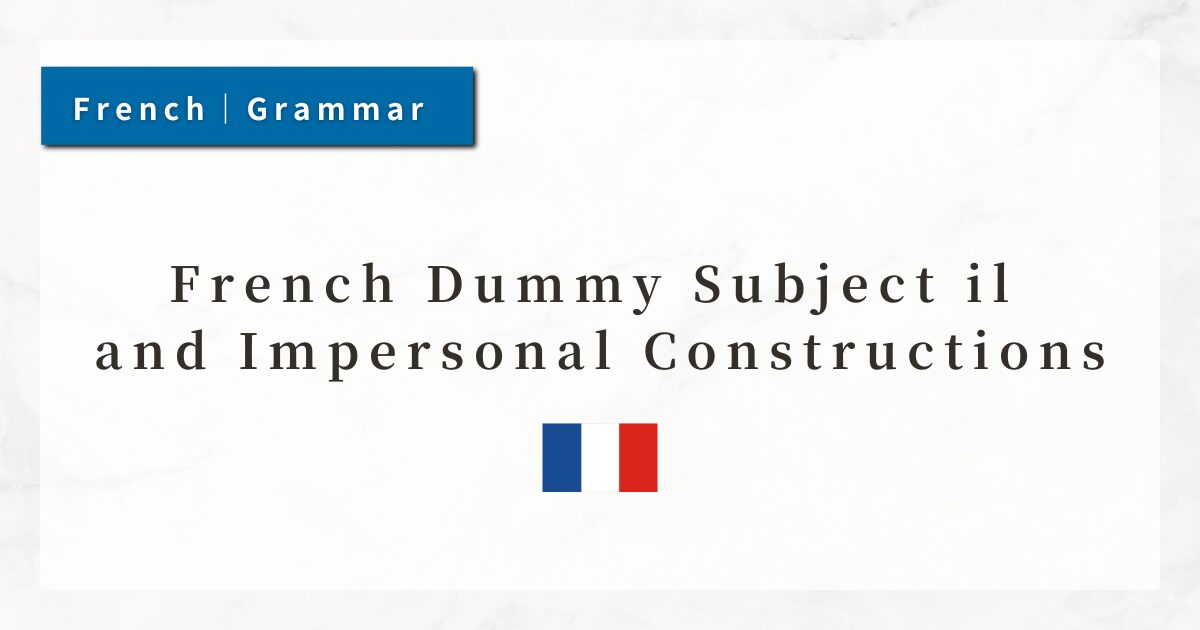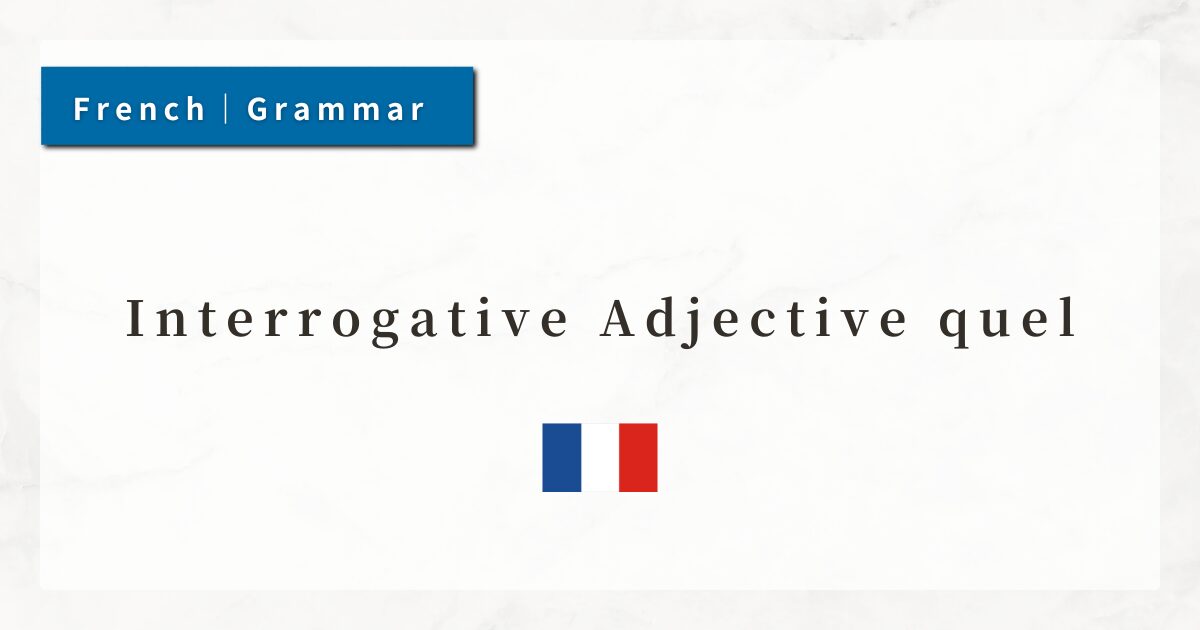#54 French Dummy Subject il and Impersonal Constructions | Meaning and Usage

In French, there are expressions that describe phenomena or general judgments without specifying “who” the subject is. Examples include “It is raining,” “It takes time,” or “It is necessary to….”
These expressions, which lack a specific subject, are called impersonal constructions. In such cases, the third-person singular pronoun il is placed in the subject position purely as a formal element.
Here, I will explain the features of French impersonal constructions and introduce some of the most common forms.
1. What Are Impersonal Constructions?
In French, a sentence always requires a grammatical subject, even when no person or object is actually involved. In such cases, the formal subject “il ”is used.
This “il ” does not refer to “he” or “it” in a concrete sense. Instead, it serves only to fill the subject slot grammatically.
Constructions using this dummy subject “il ” are called impersonal constructions. In English, this usage is similar to “It rains” or “It is important.” In French, such constructions are typically used to express weather, time, necessity, or existence.
2. Weather Expressions
In weather-related expressions, “il” is used as the subject, describing natural phenomena.
The verbs used in these constructions are impersonal weather verbs and always appear in the third-person singular form.
- Il pleut.
(It is raining.) - Il neige.
(It is snowing.) - Il fait chaud / froid / beau.
(It is hot / cold / fine.)
Here, “il ” does not mean “someone causes the rain to fall,” but is simply a formal subject to make the sentence grammatically complete.
Many weather expressions also use the verb faire in impersonal constructions.
3. Expressions of Time and Date
When expressing time or date, French always uses “il ” as the subject. In these cases, the verb être is used.
- Il est huit heures.
(It is eight o’clock) - Il est midi.
(It is noon) - Il est tard.
(It is late) - Il est lundi.
(It is Monday)
Here too, “il ” does not represent the time or the day itself, but acts as a grammatical subject that introduces the expression of time.
4. Constructions of Evaluation, Judgment, and Obligation
Impersonal constructions are also used to express opinions, evaluations, or necessity. These typically appear in two patterns:
4-1. Il est + adjective + de / que…
- Il est important de bien dormir.
(It is important to sleep well.) - Il est difficile de comprendre cette règle.
(It is difficult to understand this rule.) - Il est nécessaire que tu viennes.
(It is necessary that you come.)
This pattern is used for statements of evaluation or judgment, where the infinitive (de + verb) or a que-clause (often requiring the subjunctive) provides the logical subject.
4-2. Il faut + infinitive / que-clause
- Il faut étudier.
(One must study / It is necessary to study.) - Il faut partir maintenant.
(It is necessary to leave now.) - Il faut que tu fasses attention.
(You must pay attention.)
The verb falloir is used exclusively in impersonal constructions and appears only as “Il faut.” This structure is one of the most common ways to express necessity or obligation in French.
5. Expressions of Existence: Il y a (There is / There are)
The construction “Il y a” expresses the existence of something in a place or time. This too is an impersonal construction with the dummy subject “il.”
- Il y a un problème.
(There is a problem.) - Il y a des étudiants dans la salle.
(There are students in the classroom.) - Il y a beaucoup de monde ici.
(There are many people here.)
This construction corresponds directly to English “There is / There are.” The word order is always fixed: “Il + y + a + noun.”
6. Summary
- Impersonal constructions use the dummy subject “il,” which carries no meaning of its own.
- They are commonly used to express weather, time, judgments, necessity, and existence.
- Weather → Il pleut / Il neige / Il fait froid, etc.
- Time/Date → Il est huit heures / Il est lundi, etc.
- Judgment/Evaluation → Il est important de… / Il faut…
- Existence → Il y a… (“There is / There are”)




